Dacia Jogger VS Hyundai i10 – Specs, Efficiency & Price Comparison
Which model is the better choice – the Dacia Jogger or the Hyundai i10? We compare performance (140 HP vs 90 HP), boot capacity (607 L vs 252 L), efficiency (4.70 L vs 4.90 L), and of course, the price (15300 £ vs 14600 £).
Find out now which car fits your needs better!
The Dacia Jogger (MPV) is powered by a Full Hybrid, LPG or Petrol engine and comes with a Automatic or Manuel transmission. In comparison, the Hyundai i10 (Hatchback) features a Petrol engine and a Manuel or Automatic gearbox.
When it comes to boot capacity, the Dacia Jogger offers 607 L, while the Hyundai i10 provides 252 L – depending on what matters most to you. If you’re looking for more power, you’ll need to decide whether the 140 HP of the Dacia Jogger or the 90 HP of the Hyundai i10 suits your needs better.
There are also differences in efficiency: 4.70 L vs 4.90 L. In terms of price, the Dacia Jogger starts at 15300 £, while the Hyundai i10 is available from 14600 £.
Compare all the key specs now and find out which model fits your lifestyle best!
Dacia Jogger
The Dacia Jogger offers a spacious and versatile interior, making it an excellent choice for families seeking practicality and comfort. Its design combines the robustness of an SUV with the functionality of an estate, providing a reliable option for various driving needs. With a focus on affordability, the Jogger ensures that essential features are accessible without compromising on quality.
details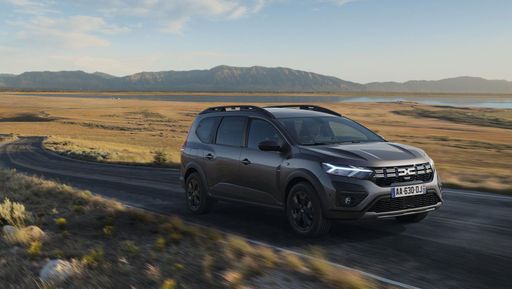 @ dacia-presse.de
@ dacia-presse.de
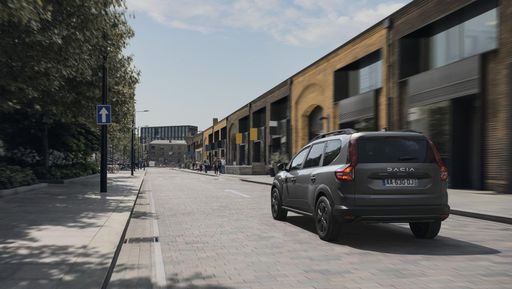 @ dacia-presse.de
@ dacia-presse.de
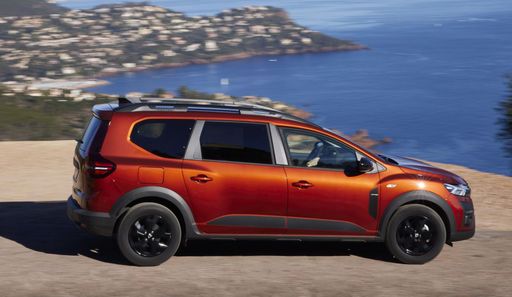 @ dacia-presse.de
@ dacia-presse.de
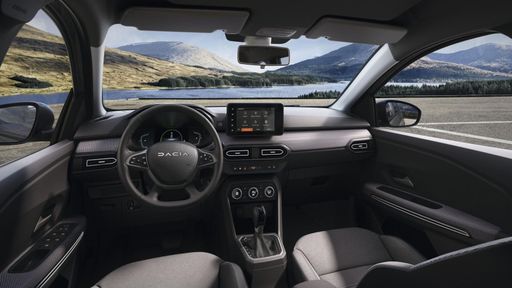 @ dacia-presse.de
@ dacia-presse.de
Hyundai i10
The Hyundai i10 impresses with its compact design, making it an ideal choice for navigating through busy urban environments. Its interior is surprisingly spacious, offering drivers and passengers comfort beyond what one might expect from a city car. The model combines efficiency and practicality, making it an attractive option for those seeking both economy and functionality in their daily commute.
details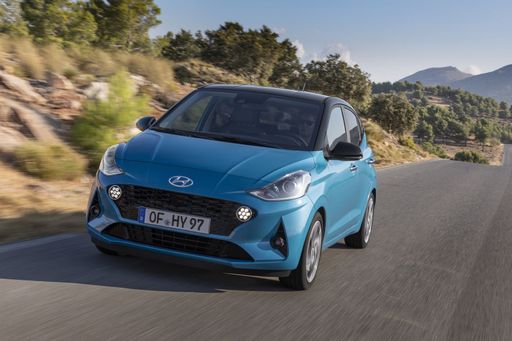 @ hyundai.news
@ hyundai.news
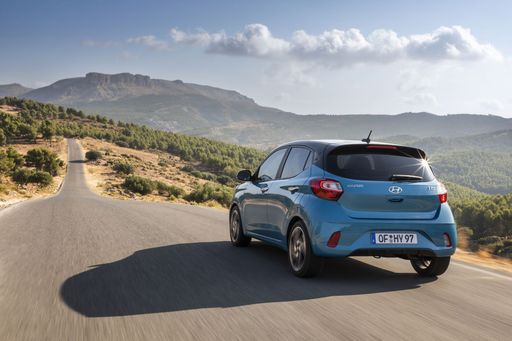 @ hyundai.news
@ hyundai.news
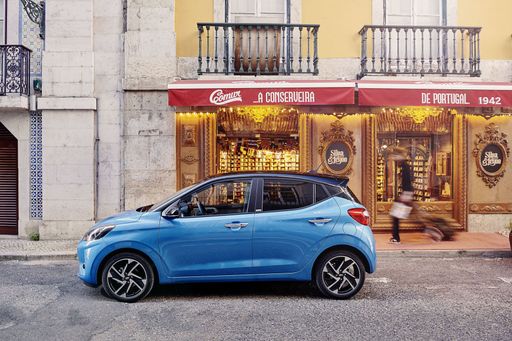 @ hyundai.news
@ hyundai.news
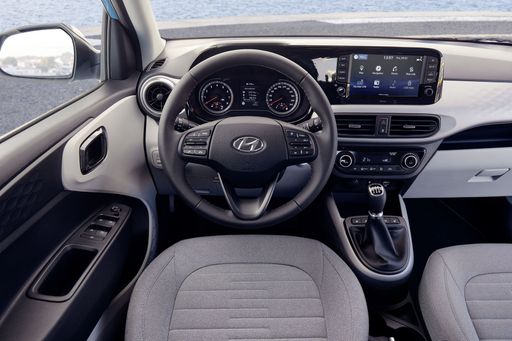 @ hyundai.news
@ hyundai.news
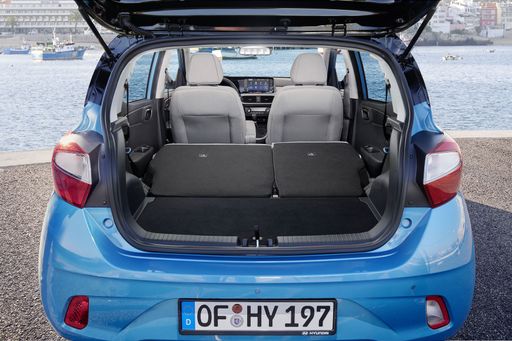 @ hyundai.news
@ hyundai.news

|

|
|
|
|
Costs and Consumption |
|
|---|---|
|
Price
15300 - 22600 £
|
Price
14600 - 19000 £
|
|
Consumption L/100km
4.7 - 7.7 L
|
Consumption L/100km
4.9 - 5.4 L
|
|
Consumption kWh/100km
-
|
Consumption kWh/100km
-
|
|
Electric Range
-
|
Electric Range
-
|
|
Battery Capacity
0.60 kWh
|
Battery Capacity
-
|
|
co2
105 - 137 g/km
|
co2
111 - 123 g/km
|
|
Fuel tank capacity
40 - 50 L
|
Fuel tank capacity
36 L
|
Dimensions and Body |
|
|---|---|
|
Body Type
MPV
|
Body Type
Hatchback
|
|
Seats
5 - 7
|
Seats
4 - 5
|
|
Doors
5
|
Doors
5
|
|
Curb weight
1251 - 1460 kg
|
Curb weight
996 - 1099 kg
|
|
Trunk capacity
160 - 607 L
|
Trunk capacity
252 L
|
|
Length
4547 mm
|
Length
3670 - 3675 mm
|
|
Width
1784 mm
|
Width
1680 mm
|
|
Height
1674 mm
|
Height
1480 - 1483 mm
|
|
Payload
393 - 582 kg
|
Payload
344 - 423 kg
|
Engine and Performance |
|
|---|---|
|
Engine Type
Full Hybrid, LPG, Petrol
|
Engine Type
Petrol
|
|
Transmission
Automatic, Manuel
|
Transmission
Manuel, Automatic
|
|
Transmission Detail
Automatic Gearbox, Manual Gearbox
|
Transmission Detail
Manual Gearbox, Automated Manual
|
|
Drive Type
Front-Wheel Drive
|
Drive Type
Front-Wheel Drive
|
|
Power HP
91 - 140 HP
|
Power HP
63 - 90 HP
|
|
Acceleration 0-100km/h
9.8 - 13.2 s
|
Acceleration 0-100km/h
11.4 - 18.4 s
|
|
Max Speed
167 - 174 km/h
|
Max Speed
143 - 175 km/h
|
|
Torque
160 - 200 Nm
|
Torque
93 - 172 Nm
|
|
Number of Cylinders
3 - 4
|
Number of Cylinders
3 - 4
|
|
Power kW
67 - 103 kW
|
Power kW
46 - 66 kW
|
|
Engine capacity
999 - 1598 cm3
|
Engine capacity
998 - 1197 cm3
|
General |
|
|---|---|
|
Model Year
2024
|
Model Year
2024
|
|
CO2 Efficiency Class
C, D
|
CO2 Efficiency Class
C, D
|
|
Brand
Dacia
|
Brand
Hyundai
|
Dacia Jogger
Introducing the Dacia Jogger: A New Era of Affordable Versatility
The Dacia Jogger has revolutionised the automotive industry by combining practicality and cost-efficiency with innovative features. This multi-purpose vehicle is perfect for families and adventurers alike, offering remarkable versatility alongside a competitive pricing strategy.
Powertrain Options: A Broad Spectrum of Choice
Dacia provides a range of powertrain options to cater to diverse preferences. The Jogger comes equipped with a selection of full-hybrid and turbocharged petrol engines. The full-hybrid version delivers a robust output of up to 140 PS, coupled with an impressive fuel efficiency of 4.7 to 4.8 L/100km. For those preferring a conventional setup, the ECO-G petrol engines offer up to 110 PS, promising a reliable and economical drive with a fuel consumption ranging from 5.7 to 7.7 L/100km.
Innovation in Every Journey
One of the notable innovations in the Jogger is its intelligent use of space. The model boasts a generous seating capacity, comfortably accommodating 5 to 7 passengers, depending on the configuration. With features like adjustable seats and a large boot space extending up to 607 litres, the Jogger is designed to handle anything from family vacations to transporting bulky items.
Design and Comfort: More than Meets the Eye
The Dacia Jogger showcases a modern design, with a robust and aerodynamic silhouette. Measuring 4547 mm in length, it strikes a balance between spaciousness and manoeuvrability. The comfort of the Jogger is enhanced by its well-crafted interior, offering various amenities across different trim levels, including Expression and Extreme, available in both five and seven-seater configurations.
Performance and Handling: Tailored for Every Terrain
Equipped with front-wheel drive and a choice between manual and automatic transmissions, the Jogger assures a smooth driving experience. Its engines, offering up to 103 kW (140 PS), ensure adequate power delivery, while the model accelerates from 0-100 km/h in just under 10 seconds. With a top speed of up to 174 km/h, the Jogger is well-suited for both urban and highway driving.
Affordability and Economy: A Balanced Proposition
Dacia continues to uphold its reputation for affordability with the Jogger, offering a competitive price range between €17,900 and €26,400. This pricing, combined with low maintenance and operating costs, makes the Jogger a highly attractive option in the MPV market. Its monthly costs are estimated between €701 and €821, ensuring outstanding value for budget-conscious consumers.
Conclusion: The Versatile Choice
The Dacia Jogger is a vehicle that offers practicality, efficiency, and innovation without breaking the bank. With its diverse range of configurations and features, it is aptly capable of meeting a wide array of needs, whether for family tasks or everyday adventures. The Jogger is more than just a means of transportation; it is a testament to Dacia’s commitment to delivering quality and value.
Hyundai i10
Introduction to the Hyundai i10
The Hyundai i10 has consistently proven to be a dependable and stylish companion for urban driving. Known for its compact design and efficiency, this hatchback offers a perfect blend of modern aesthetics and practicality, making it a popular choice for city dwellers and small families alike.
Performance and Efficiency
The Hyundai i10 is available with both manual and automatic transmissions, catering to various driving preferences. Engine power ranges from 63 to 90 PS, providing a versatile driving experience for both novice and seasoned drivers. The fuel consumption varies between an impressive 4.9 to 5.4 litres per 100 kilometres, fitting for those looking to minimise fuel costs while also reducing their carbon footprint.
Engine and Transmission
Equipped with a choice of 1.0-litre or 1.2-litre engines, the i10 offers up to 172 Nm of torque, ensuring lively performance. The models feature front-wheel-drive configurations, allowing for smooth handling and reliable road performance. The car excels in city driving but is equally capable on longer journeys.
Interior and Comfort
Despite its compact size, the Hyundai i10 does not compromise on interior space and comfort. It accommodates four to five occupants comfortably, offering sufficient legroom and headroom. Its flexible seating arrangement and a 252-litre boot make it ideal for both quick trips and weekend getaways.
Safety and Technology
Safety remains a priority with Hyundai, and the i10 is no exception. It comes equipped with multiple airbags, stability control, and advanced braking systems. Technology-wise, the i10 features a user-friendly infotainment system with smartphone connectivity, ensuring a pleasant and connected drive.
Design and Style
The Hyundai i10’s design is both modern and sleek, making it stand out in the compact hatchback segment. With a length ranging from 3670 to 3675 mm, a width of 1680 mm, and a height of 1480 to 1483 mm, the i10 strikes a perfect balance between style and functionality.
Affordable Pricing and Value
The i10 is available in several trims including the Select, N Line, and Prime, among others, with prices ranging from €16,990 to €22,190. Considering its features and low running costs — with monthly expenses estimated between €694 to €793 — the Hyundai i10 offers substantial value for those seeking an economical yet stylish hatchback.
Conclusion
The Hyundai i10 combines efficiency, modern design, and practicality in a compact package. Whether you are seeking a reliable city car or an economical daily driver, the Hyundai i10 is a strong contender worth considering in the compact car market of 2024.
The prices and data displayed are estimates based on German list prices and may vary by country. This information is not legally binding.
